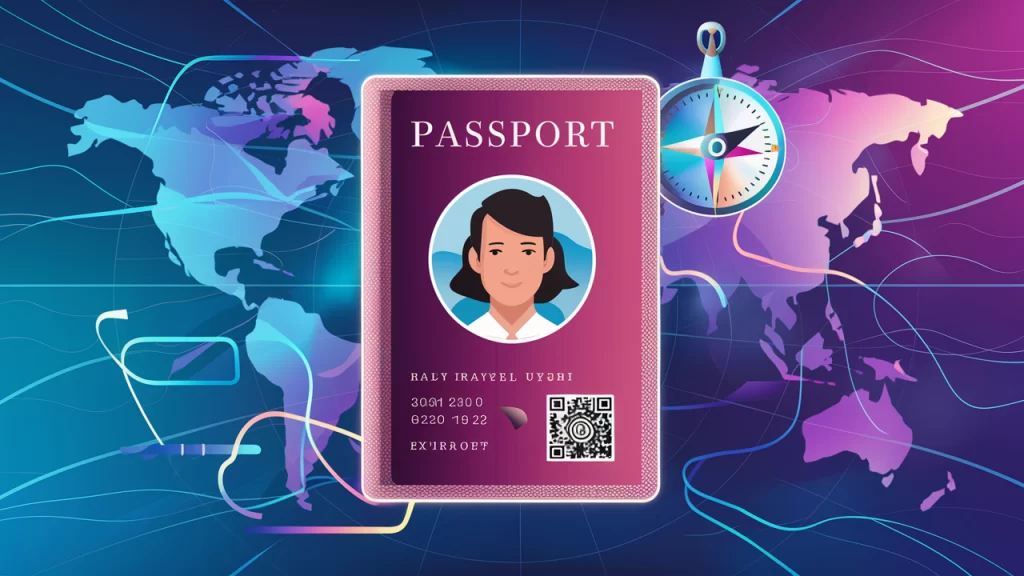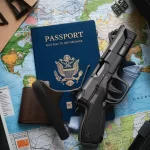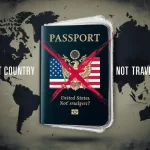Traveling, whether domestically or internationally, requires proper identification to ensure smooth passage and compliance with regulations. Travel IDs are crucial in verifying your identity, facilitating your journey, and enhancing security. This article delves into the importance of travel documents, the different types available, and essential guidelines for ensuring you have the right identification for your next trip.

Content
Importance of Travel Documents
Travel documents play a pivotal role in ensuring a seamless travel experience. Here are three key reasons why they are essential:
- Ensuring Identity Verification: Travel IDs such as passports and visas confirm your identity, allowing you to pass through security checks and enter new countries without hassle.
- Facilitating International Travel: Proper documentation is required for entry into most countries. Travel documents like passports and visas provide the necessary authorization.
- Enhancing Security Measures: These documents help maintain security by ensuring that only authorized individuals can travel, thus protecting against fraud and illegal activities.
Types of Travel Documents
Understanding the different types of travel documents is crucial for any traveler. Here are the three primary types you need to be aware of:
Passports
A passport is the most widely recognized travel document. It serves as proof of identity and nationality and is required for international travel. To obtain a passport, you need to submit an application to your country’s passport issuing authority, typically involving providing personal information, proof of citizenship, and a passport photo.
Visas
Visas are endorsements placed within your passport by a foreign government, allowing you entry for specific purposes such as tourism, work, or study. There are various types of visas, including tourist visas, business visas, and student visas. The application process involves submitting forms, photographs, and sometimes attending an interview at the consulate or embassy of the country you wish to visit.
National IDs and Other Identification
In some countries, national IDs or other forms of identification can be used for travel within the country or to neighboring countries with specific agreements. These IDs typically include personal information and a photograph, serving as proof of identity and residency.
When Do You Need a Travel ID?
Knowing when and what type of travel ID you need is essential for hassle-free travel.
Domestic Travel Requirements
For domestic travel, especially within the U.S., the Transportation Security Administration (TSA) requires a government-issued ID, such as a driver’s license or state ID. Minors typically do not need a photo ID when traveling with a companion, but it’s best to check specific airline policies.
International Travel Requirements
International travel invariably requires a passport. Additionally, many countries require a visa for entry. It’s important to check the entry requirements of your destination country well in advance of your trip to ensure you have the necessary documents.
How to Prepare Your Travel Documents

Proper preparation of your travel documents can save you time and stress.
Checking Expiry Dates
Ensure your passport and visas are valid for the duration of your trip. Some countries require passports to be valid for at least six months beyond your travel dates.
Making Copies of Important Documents
Make photocopies of your passport, visa, and other essential documents. Keep one set of copies with you and leave another set with someone you trust back home.
Understanding Specific Country Requirements
Research the specific entry requirements of your destination, including any additional documentation or health certificates that may be needed.
Tips for Safeguarding Your Travel Documents
Protecting your travel documents is critical to avoid disruptions in your travel plans.
Keeping Documents Secure During Travel
Use a secure travel wallet or passport holder. Keep your documents in a safe place, such as a hotel safe, when not in use.
What to Do If Your Travel Documents Are Lost or Stolen
Immediately report the loss to local authorities and your nearest embassy or consulate. They can assist you in obtaining temporary travel documents to continue your journey or return home.
Conclusion
Travel documents are indispensable tools for ensuring smooth and secure travel. By understanding the types of documents required, preparing them properly, and safeguarding them during your travels, you can avoid many common travel pitfalls. Always check the specific requirements of your destination and stay informed to ensure your next trip goes off without a hitch.

An avid traveler, Kirk Grover has been to over 50 countries. He has an extensive background in tourism and hospitality management, along with a degree in Hospitality Management from the University of Nevada Las Vegas. Kirk is very knowledgeable about travel-related topics – they are always up to date on the latest deals for flights, hotels, and other adventures around the world.











